Greatest Mathematicians in History: Mathematics is the foundation of humanity’s growth since it is used in scientific experiments, calculations, and discoveries. While many students despise this topic, it may be rather fascinating when seen as a way of unraveling the universe’s secrets. Mathematics is a popular topic that most people either enjoy or despise.
Mathematics has played a critical role in our rapidly evolving civilization, which no one can dispute. Because of arithmetic, we have accomplished a great deal, including reaching the moon, obtaining the secrets of DNA, creating and transmitting energy across hundreds of kilometers.
The Pythagorean Theorem, Fermat’s Last Theorem, Geometrical Theorems, Number System, Probability, and Fractions have all benefited greatly from the efforts of great mathematicians. It has aided in the development of our collective mathematical knowledge. Without these outstanding masterminds with unique thoughts and conceptions, such profound mathematical innovations would not be feasible.
Mathematics as we know it now did not appear out of anywhere, like so many other things. A new, ground-breaking theorem and equation take decades for mathematicians to formulate. What kind of mathematicians are these? Let’s take a look and see what we can learn.
Recommended: Famous Scientists in the world and their contributions
Greatest Mathematicians Off All Time
1. Euclid: Euclid of Alexandria was a Greek mathematician considered the father of geometry. One of the oldest and most significant texts on mathematics is Euclid’s Elements, a collection of 13 volumes.
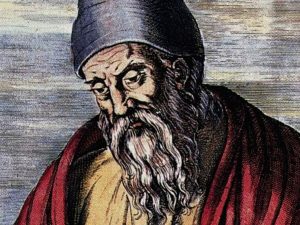
Although geometry (now known as Euclidean geometry) is the focus of Euclid’s Elements, it also includes a thorough introduction to basic number theory. His contributions to optics have also received much acclaim.
Euclid’s methodical approach to his work, which began with axioms and progressed logically to complicated discoveries, has impacted some of history’s greatest minds. It is exemplified by Newton’s Principia Mathematica.
2. Archimedes: Archimedes was a Greek mathematician, physicist, and astronomer who lived around 287 BC in Syracuse, Sicily. He was a multi-talented individual. However, most of his literary works have perished.
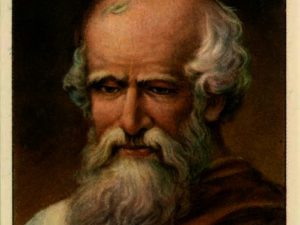
Archimedes was a mathematician who developed formulae for calculating the area of a circle, volume, and surface area of a sphere. For decades, his technique of calculating pi’s value remained unquestioned and the only known way to determine the circumference of a circle.
The Fields Medal, the greatest accolade in mathematics, features an image of Archimedes (right facing) and a phrase ascribed to him.
Also see: Most technologically advanced countries in the world
3. Carl Friedrich Gauss: Carl Friedrich Gauss (1777–1855) was a genius who developed and authored the Disquisitones Arithmeticae – his finest work – at the age of 21. He was born in Brunswick, Germany, to an honest gardener.
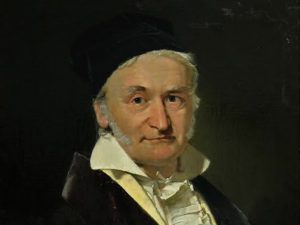
Gauss, who was regarded the greatest mathematician of the 19th century, made several significant contributions in the key sectors of mathematics, including number theory and theorem of algebra, with his remarkable intellectual potential and mathematical abilities.
He never published all of his works since he was continuously looking for methods to improve and perfect his theorems, and notes on one of his main works, non-Euclidean space, were discovered after his death.
He proposed an astronomical data analysis with the conclusion that measurement error would result in a bell curve, which is known as the Gaussian distribution.
Carl, also known as the Prince of Mathematics, died at the age of 77 after a heart attack.
Also see: Differences between developed and developing countries
4. Leonard Leonhard Euler: Born in Basel, Switzerland, Leonard Leonhard Euler (1701–1783), was a prominent mathematician, scientist, and scholar of the 18th century.
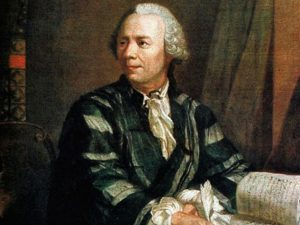
Despite his profession as a rural pastor, he showed a significant interest in ability and inclination for mathematics and spent most of his career studying and teaching mathematics in St. Petersburg and Berlin.
During his lifetime, Euler authored a total of 886 books and articles, the majority of which were written during his latter 20 years of existence, when he had lost his sight.
He invented mathematical vocabulary, trigonometric notations, investing logarithmic functions, and made several advancements in science.
In the subjects of geometry, calculus, trigonometry, number theory, differential equations, and notational systems, he was also regarded as a groundbreaking thinker.
On September 18, 1783, in St. Petersburg, Euler died of a brain hemorrhage.
5. Pythagoras: Pythagoras (570–495 BC), a Greek mathematician who was born on the Greek island of Samos, was educated by Thales, a teacher who brought mathematics back to Greece.
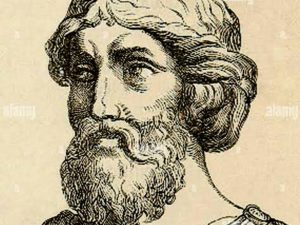
After coming to Egypt, he began studying their religion, culture, and mathematics and utilized what he learned to found a school that was named after him (Pythagoras School).
Pythagoras, a mathematician who was preoccupied with numbers, established a number of theorems, including the right-angled triangle theorem and the Pythagorean theorem in trigonometry. From musical intervals, he established rational numbers and mystic numerology.
He is well known for being the first to prove the Pythagorean theorem, which had previously been proposed but never proven by another mathematician.
Also see: How to become a successful entrepreneur
6. Srinivasa Ramanujan: Srinivasa Ramanujan (1887– 1920) was an Indian mathematician who became interested in mathematics when he was 15 years old after receiving a copy of George Shoobridge Carr’s Synopsis of Elementary Results in Pure – Applied Mathematics.
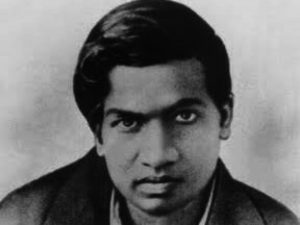
Despite receiving a scholarship at the University of Madras in 1903, Srinivasa showed little interest in disciplines other than mathematics, resulting in his scholarship being revoked.
He began to achieve prominence as a mathematician after publishing his first work in the Indian Mathematical Society’s Journal.
His mathematical expertise also enabled him to make significant discoveries, primarily in the partition of numbers – positive integer numbers may be written as the sum of positive integers: 5 = 4 + 1 or 2+2+1 or 1+1+1+2.
Ramanujan was the youngest member of the Royal Society and made several contributions to mathematical analysis, continuous fractions, and number theory (31 years).
By finding the features of the partition functions, he was able to make history and impact others as the first Indian to be elected a fellow of Trinity College in Cambridge.
Srinivasa died at the age of 32 from hepatic amoebiasis, a liver parasitic infection.
Recommended: Best science courses to study in the university
7. Isaac Newton: Isaac Newton (1643–1727), a British scientist, was educated at Trinity College (Cambridge) and The King’s School at Woolsthorpe-by-Colsterworth (Grantham). He is a mathematician, astronomer, physicist, and novelist from England.
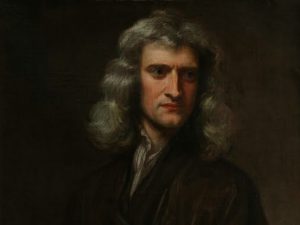
The genius is thought to have impacted the European enlightenment by developing calculus with the famous scientific epic Principia Mathematica- three laws of motion and a theory concerning the rule of gravity.
After establishing his symbolic significance by shifting the pound sterling from silver to gold standard and attempting to punish the counterfeiter, he was elected president of the Royal Society in 1703.
In 1704, he published Opticks, a dissertation that detailed his laborious investigations of the color spectrum, refraction, and concluding musings on a variety of themes, including energy and electricity.
On March 31, 1727, while asleep, Isaac Newton died of mercury poisoning.
8. Cardano: An Italian mathematician named Girolamo Cardano (1501–1576) was also a physician, philosopher, and astrologer.
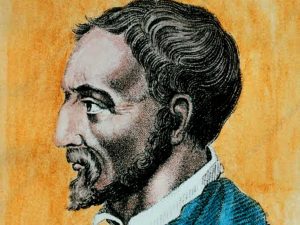
Cardano enrolled at the University of Pavia to study science, philosophy, and math, against his father’s insistence that he pursue law.
He is regarded as the pioneer of probability and the creator of the binomial coefficients – theorem since he was the first mathematician to develop the systematic use of numbers that are smaller than zero.
Cardano is the author of more than 200 publications in the fields of mathematics, music, philosophy, medicine, religion, and physics. Opus novum de proportionibus is his most important book, and it contains all of the binomial coefficients and theorems.
In 1663, he produced Liber de ludo aleae (Work on Games of Chance), a book about the methodical treatment of probability and cheating tactics, and his understanding of probability was strengthened by his gambling habit.
Also see: Countries with the highest number of internet fraudsters
9. John von Neumann: John lived from 1903 until 1957. He was born in Budapest and contributed to the development of computer architecture.
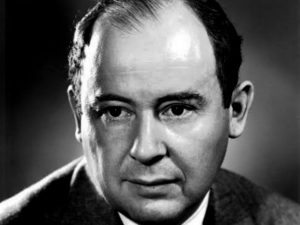
His architecture is the foundation of today’s computers. This is due to his contribution to the development of a series that serves as the foundation for all electronic gadgets.
He was a chemical engineer as well, but his passion was always for mathematics.
Set theory, geometry, game theory, quantum physics, and computer science were the areas in which he achieved the most of his breakthroughs. He also contributed significantly to the Manhattan Project.
10. David Hilbert: David Hilbert was a legendary mathematician. He was a crucial role in the creation of fundamental ideas in the domains of commutative algebra, calculus of variations, and mathematical physics.
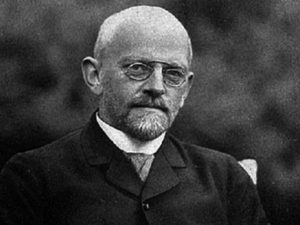
Hilbert’s problems (a set of twenty-three mathematical puzzles published in 1900) sparked groundbreaking studies in a wide range of fields. Several of those problems are still unresolved to this day.
In his last years, David Hilbert specialized in physics. At the time, he was in a general relativity competition with Albert Einstein.
Recommended: Advantages and Disadvantages of being a Doctor
Conclusion
While many students despise this topic, it may be rather fascinating when seen as a way of unraveling the universe’s secrets. Many others have been impacted and encouraged directly or indirectly as a result of these notable mathematicians’ efforts, ideas, brilliance, and initiations.
All of the above-mentioned masterminds’ theorems have been valuable from the moment they were proven till now.

Edeh Samuel Chukwuemeka, ACMC, is a lawyer and a certified mediator/conciliator in Nigeria. He is also a developer with knowledge in various programming languages. Samuel is determined to leverage his skills in technology, SEO, and legal practice to revolutionize the legal profession worldwide by creating web and mobile applications that simplify legal research. Sam is also passionate about educating and providing valuable information to people.
Very Interesting